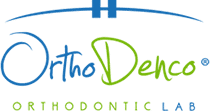When collaborating with an orthodontic laboratory, dentists play a crucial role in ensuring the success of orthodontic treatments. Effective communication between dentists and orthodontic laboratories is essential for delivering high-quality orthodontic appliances and achieving optimal patient outcomes. To facilitate this communication, dentists should ask the following important questions when working with an orthodontic laboratory.
10 Questions to Ask Your Orthodontic Lab
1. Qualifications & Expertise
Not all orthodontic labs are created equally, and while experience doesn’t always equate to quality output, it’s worth understanding where your orthodontic lab began and what they specialize in today.
- What are the qualifications and credentials of your orthodontic lab technicians?
- How many years of experience do they have in orthodontic appliance fabrication?
- Are they familiar with the latest orthodontic techniques and technologies?
2. Turnaround Time
In choosing an orthodontic laboratory, it’s essential to know their average turnaround time and the timeline they require for production of certain appliances.
- What is the average turnaround time for different types of orthodontic appliances?
- Can the lab accommodate rush orders or expedited cases when necessary?
- Are there any specific procedures or steps that can expedite the fabrication process?
3. Communication & Collaboration
In dentistry, you need to know that your orthodontic lab partner will maintain an open and accessible line of communication in the instance that you have questions or more information to provide them.
- What are the preferred modes of communication between the dentist and the lab?
- Is there a dedicated point of contact at the lab for any queries or concerns?
- How does the lab handle case discussions, treatment planning, and modifications?
4. Case Specifics
Every lab operates a little differently than their competition, should it’s essential that you get to know their processes up front. With this, you’ll be able to streamline your end of the process so you can get them the exact info they need when they need it most to ensure you get the optimal appliances every time.
- What information and records should be provided to the lab for each case?
- How should the models, impressions, and digital scans be prepared and shipped?
- Are there any specific requirements for specific appliances or treatment modalities?
5. Appliance Selection & Customization
As commonplace as many types of orthodontic appliances have become, not all laboratories have the capability to fabricate everything. Before you enter into a relationship with a particular lab, ask them the following questions to ensure that they’ll be meeting your patients’ needs.
- Which types of appliances does the lab specialize in fabricating?
- Can appliances be customized to meet specific patient needs or treatment goals?
- What options are available for different types of appliances, such as colors or designs?
6. Quality Control
There’s something to be said for quality or quantity in dentistry. If you have an orthodontic lab that can produce a high number of appliances, but those appliances don’t meet certain quality standards, then you’ll risk your patient satisfaction and retention.
- What quality control measures are in place at the lab?
- How are appliance fit, function, and aesthetics ensured before delivery?
- What is the lab’s policy for remakes or adjustments in case of any discrepancies?
7. Materials & Safety
While certain materials have become the standard for certain appliances, it’s important to consider what an orthodontic lab may specialize in and if they have any particular safety precautions in place with these given materials.
- What materials are used in the fabrication of orthodontic appliances?
- Are these materials biocompatible and free from harmful substances?
- Does the lab comply with relevant regulatory standards and guidelines?
8. Cost & Payment
Without considering the cost involved with a given orthodontic laboratory, the business side of your dental practice could face logistical challenges and financial headaches.
- What is the fee structure for different types of orthodontic appliances?
- Are there any additional charges for rush orders or customization?
- What are the payment options available, and what are the lab’s policies regarding refunds or returns?
9. Continuing Education & Training
Orthodontic technology continues to change and evolve, so you need to know how your orthodontic lab plans to continue their education in the area to keep up with changing regulations and advancements.
- Does the lab participate in ongoing professional development and training?
- How do they stay updated with the latest advancements in orthodontics?
- Can they provide information or resources to enhance the dentist’s knowledge and skills?
10. Collaboration Feedback
An orthodontic laboratory is an environment that should be familiar with feedback, but it’s important as a dental practice to determine how to best deliver that.
- Is the lab open to receiving feedback and suggestions for improvement?
- How does the lab address any concerns or issues raised by the dentist?
- Is there a process in place for regular performance evaluation or review?
By asking these important questions, dentists can establish a strong working relationship with orthodontic laboratories. Clear communication and a mutual understanding of expectations and requirements contribute to the efficient and successful delivery of orthodontic appliances, resulting in improved patient care and outcomes.
If you would like to learn more about clear aligners, 3D printing, or more advancements in orthodontic technology, contact the team at OrthoDenco Digital Orthodontic Laboratory today. With over 35 years of experience and 400 active accounts, we have the experience, leading reputation, and innovative 3D printing equipment necessary to meet all of your dental practice’s needs. We are happy to be your trusted go-to orthodontic lab, so you can be there for your patients.
